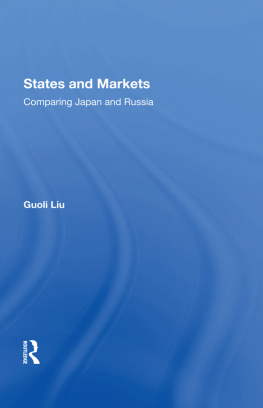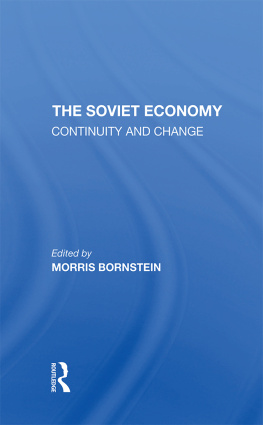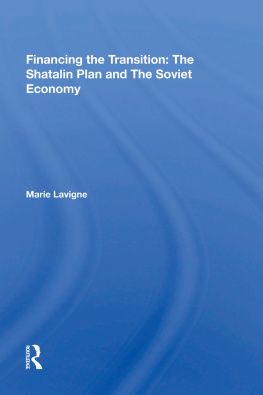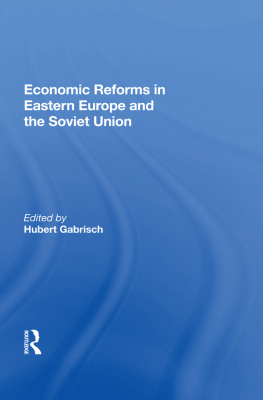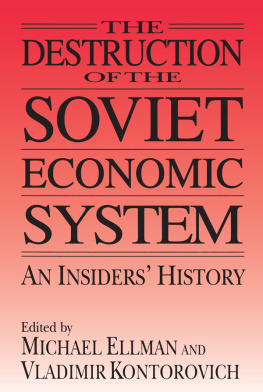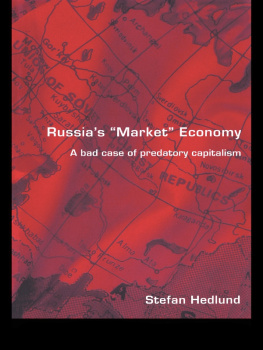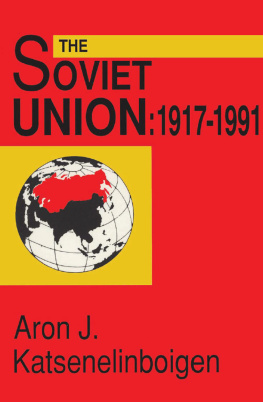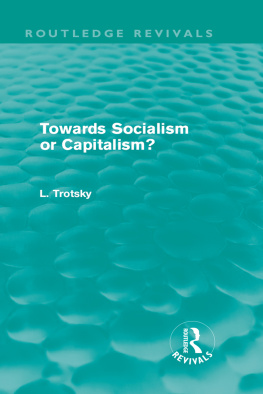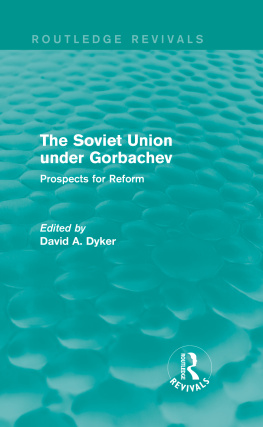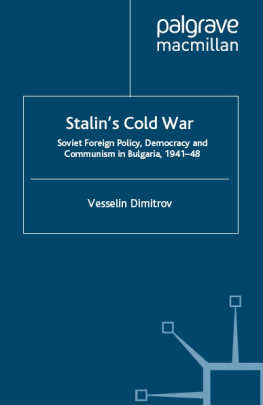First published 1994 by Westview Press
Published 2019 by Routledge
52 Vanderbilt Avenue, New York, NY 10017
2 Park Square, Milton Park, Abingdon, Oxon OX14 4RN
Routledge is an imprint of the Taylor & Francis Group, an informa business
Copyright 1994 Taylor & Francis
All rights reserved. No part of this book may be reprinted or reproduced or utilised in any form or by any electronic, mechanical, or other means, now known or hereafter invented, including photocopying and recording, or in any information storage or retrieval system, without permission in writing from the publishers.
Notice:
Product or corporate names may be trademarks or registered trademarks, and are used only for identification and explanation without intent to infringe.
Library of Congress Cataloging-in-Publication Data
States and markets : comparing Japan and Russia / by Guoli Liu.
p. cm.
Includes bibliographical references and index.
1. Industry and state-Japan.2. Industry and state-Russia.
3. Industry and state-Soviet Union.4. Industry and state-Russia
(Federation)5. Japan-Polities and government-1968-6. Russia
(Federation)-Polities and government.7. Japan-Eeonomic
policy-1989-8. Russia (federation)-Economic policy-1991-
I. Title.
HD3616.J32L58 1994
338.947dc20
93-34543
CIP
ISBN 13: 978-0-367-28879-2 (hbk)
Initial excitement in the West over the reform of Soviet communism under Gorbachev and then euphoria over the disintegration of the USSR have now been replaced by concern, controversy, and sometimes despair over prospects for democracy and a market economy in the countries of the former Soviet Union. Despair is reflected in the popular joke that the transition from a communist centrally planned economy to a capitalist market economy is like the transition from fish soup to an aquarium. Only time will tell if the aquarium analogy holds water. Meanwhile, as policy makers in Russia and elsewhere in the former Soviet Union grapple with strategies, tactics, and details, scholars and policy advisors continue to debate questions of sequence, timing, and appropriate models.
With regard to sequence, some assert that economic reform is primarily a political process; others focus more exclusively on economic institutions in the process of economic reform. Aspects of this debate are holdovers from the Gorbachev era when pundits argued over whether political reform should precede economic reform, or economic reform should precede political reform, or both should occur simultaneously.
With regard to timing, some argue in favor of shock therapy for rapid economic change as embodied in the 1990 Shatalin 500-day plan (Jeffrey Sachs and Anders Aslund); others argue for a more gradual approach because of the necessity to build political consensus (Padma Desai) or because shock therapy goes against the grain of 1,000 years of Russian history and, therefore, condemns to failure progress toward democracy (Stephen F. Cohen).
There also is divergence of opinion concerning appropriate models both for Russias transition to a market economy and the type of market economy it should seek to establish. Given the success of shock therapy in creating economic stabilization and market economies in Bolivia and Poland, Jeffrey Sachs holds them up as models for Russia. But skeptics could argue that current conditions and enduring historical factors (of both near and distant origin) are so different that neither country is a relevant model for Russia. Although China may serve as a laboratory experiment should Russia choose to implement reforms similar to Chinas privatization of agriculture, China wont do as a model for Russian economic reform because the Stalinist model has a longer history and is more deeply ingrained in the Russian/Soviet experience than anywhere else (Marshall I. Goldman) and the Russian state sector is much larger than Chinas (Sachs) with the result that Russia has a stronger and more resistant bureaucracy, a qualitatively different level of economic development, and greater distortions in its society (Aslund). Nor can China serve as a model for gradualism because of Russias much larger state sector that is the very source of bureaucracy, inertia, and inefficiency. Neither is Hungary an appropriate model (Aslund), since a good degree of state intervention will be required and that can happen successfully only in a country with an orderly society and state administration (i.e., Hungary, but not Russia).
Economists such as Aslund prefer the analytical-structural approach; political scientists such as Cohen prefer the historical-cultural approach. As a result, Cohen stresses that Russia will have to find its own way; it simply cannot do it the American or any other way. Again, one has to take account of 1,000 years of Russian history and (one must add) the fear of at least some Russian citizens, managers, and officials that the United States and other capitalist countries want privatization/marketization in Russia in order to reduce it to the status of a Third World country whose main contribution to the world economy is the export of raw materials.
Despite these differences, there is some agreement concerning the role of the state, not only in the transition to a market economy in Russia but also in its practice. Although there have been reforms in the direction of privatization and marketization, a large state sector will remain a fixture of the post-command economy, says Cohen, because it is a Russian tradition. Aslund agrees that the state is the most crucial economic institution, although he feels its capacity is limited because both Russian society and its state administration are less orderly.
This leads us to the question of an appropriate balance between states and markets, and that is precisely the question addressed by Guoli Liu in his exploration of the relevance of the Japanese experience for contemporary Russia in this important and timely book.
Building on Robert Gilpins seminal study of the mutual interactions of very different means for ordering and organizing human activities: the state and the market ( The Political Economy of International Relations , 1987), Dr. Liu has produced a worthy successor to the first detailed attempt to compare the political economies of Japan and Russia: The Modernization of Japan and Russia : A Comparative Analysis (1975) by Cyril E. Black and his colleagues. After comparing the role of the state and the market in Russian and Japanese economic and political development in the pre-Soviet and Soviet periods, Dr. Liu then inquires into the synergistic relationships between marketization and democratization during the period of perestroika in the USSR. His analysis and conclusions will help us all understand much better the dynamics of Russian economic reform in the post-Soviet era.
There are, to be sure, great differences between the cultures, the political systems, and the historical development of the two countries relating to the state and the market. Among other issues, the Japanese state relied on cooperation with the market, while the Soviet state relied on an administrative command system to implement its plans. Nevertheless, as the author points out, the two countries share the important tradition of a strong state and a weak market. It is perhaps for this reason that there are signs that first Mikhail Gorbachev, and then Boris Yeltsin, have looked to Japan as a potentially appropriate model for the USSR and now Russia to find its own way. As Russians move toward capitalism there is another important reason for them to look to Japan. Lester Thurow reminds us in

